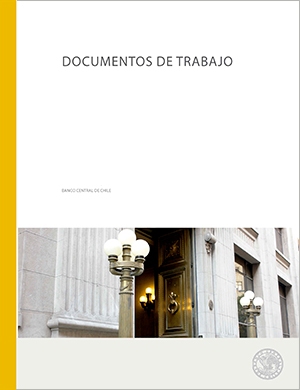Working Papers Nº 267: Acerca del Nivel Adecuado de las Reservas Internacionales
Publications
Working Papers Nº 267: Acerca del Nivel Adecuado de las Reservas Internacionales
Autor: Claudio Soto , Alberto Naudon , Eduardo López , Alvaro Aguirre
Description
Under a flexible exchange rate regime international reserves contribute to reducing the risk of a financial crisis, and allow the monetary authority to exceptionally intervene in the exchange market. However, holding reserves is costly. In this paper, we analyze several issues concerning the adequate level of Chilean international reserves. In the first place, we compare the level of Chile’s international reserves with those of different sets of countries using various indicators. We then analyze empirically some of the benefits and costs of holding reserves. Our results show that Chile’s international reserves are high when measured with respect to GDP or M2, but they are in line with those of countries of similar characteristics when measured as a fraction of short-term residual debt. On the other hand, given the low risk of the Chilean economy, marginal changes in reserves have a very low impact on both the probability of a financial crisis and the sovereign spread of the country. Finally, as the sovereign spread has decreased over the last years, so too has the cost of reserves. In fact, by the end of 2002, and despite having a high reserves-to-GDP ratio, the cost of reserves as a fraction of GDP was considerably lower than the cost of other emerging economies.
Working Papers Nº 267: Acerca del Nivel Adecuado de las Reservas Internacionales
Boxes and graphics

